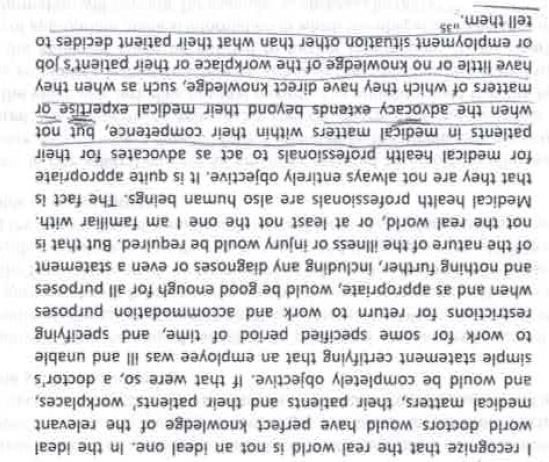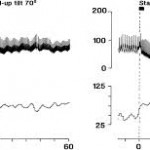The Quote extracted from an Abitrated Case by Arbitrator Surdykowski in Hamilton Health Sciences Supra Note 18 at Paragraph 40 2011, is outlined in this Blog as it is very important and timely given how often Physicians are submitting notes to HR and FM in the workplace regarding;
-what equipment must be put into place in the workplace. For example Sit to Stand workstations, specific types of chairs.
-what weights or tasks an employee can or cannot do – it is interesting how a lifting limit of 10 lb’s always makes it into these GP notes & in the absence of any functional testing data or clinical testing in the GP’s office
-when and how someone should be accommodated into the workplace eg. hours of work, and even recommending the employee report to an alternate supervisor or manager.
Once you read this Arbitrated decision from 2011 this will hopefully guide your HR team and RTW/DM providers to learn why you DO NOT have to manage employee’s MD notes or abide by them when the information is outside of their expertise, skill and knowledge. This arbitrated decision is oft referred to in subsequent labour relations cases regarding MD notes and the role of the MD in RTW, accommodation and ergonomics.
Specifically MD’s SHOULD NOT be writing notes about anything outside of their knowledge and purview. It is our opinion at OPC Inc that companies not accept any MD notes which try to dictate the type of furniture or equipment to be used; the nature of a return to work and accommodation plan; or modified work, change of supervisor (yes MD’s often write these notes in our DM practice at OPC).
If you need to learn how to develop a Policy about Physician’s notes or any other aspect of return to work, accommodation and ergonomics contact us at Info@optimalperformance.ca or read The Return to Work Employers Toolkit Pub Carswell, Author JESleeth.

This recent Arbitrators decision outlines what MD’s can and cannot comment on regarding ergonomics & RTW
“32. When I revisited the issue in Providence Care, Mental Health Services, I found no reason to alter the views expressed in Hamilton Health Sciences and I wrote in part that:
30. The fact is that most of our medical health professionals, particularly family physicians, are under supported and overburdened. The jurisprudence contains many examples in which scrutiny has revealed an insufficient basis for a submitted doctor’s “certificate”. On the basis of that jurisprudence, and my own experience as arbitrator in such cases, I think it fair to say that the pressures of the modern medical practice in this jurisdiction are such that a doctor’s note to excuse a short-term absence from work may be available virtually upon request without much if any inquiry much less examination by the doctor or other medical health professional who is asked for such a note. Whether that is true of a particular medical health professional or on a particular occasion is generally not known in advance. Further, nothing has come to my attention that causes me to retract my observation in Re Hamilton Health Sciences, supra (at paragraph 40), that family physicians in particular are prone to acting as advocates for their patients, leaving the reliability of a note that contains only a general statement that the employee was unable to attend work due to illness or injury particularly in doubt. The sad fact is that patients in our complex but underfunded and undermanned health care world often need an advocate to help them navigate the system. But such advocacy may be misplaced when it enters the employment or legal world. Particularly in the unionized work world there is a very limited place for medical health professionals as advocates. There the role of the medical health professional is to provide the necessary medical facts and expert opinions as required, and to leave advocacy in the collective agreement benefits administration process, or the grievance arbitration process, to the union which is charged with the duty and responsibility of representing employee interests in that respect.” copyright Surdkykowski 2011


